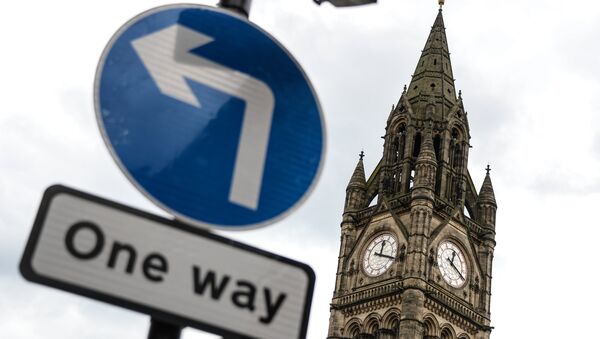Sputnik: Boris Johnson swept out much of Theresa May's Cabinet – why is he in such a hurry? What's behind his move?
Dr Donnacha O'Beachain: The culling of so many cabinet stalwarts is designed to bolster the impression that Johnson means business and that his premiership – however brief it might be – represents a break from that of his predecessor. It is a cabinet designed to appease the Eurosceptic Brexiteer wing of the Tory party and is certainly not representative of the country at large. Johnson's choice of ministers and his soaring rhetoric, which is high on aspiration but sparse on detail, seems geared for a general election rather than a complicated negotiating process.
Prime Minister Johnson gave vital roles in his new Cabinet to leading Brexiteers. Jacob Rees-Mogg, who was heading the pro-Brexit Tory European Research Group, denied there had been a "Leave" takeover of the Cabinet. "Boris is bringing the country together, the party together, through his cabinet appointments," he said. Do you think such an approach can help Johnson keep his promises and deliver Brexit on time?
Dr Donnacha O'Beachain: The new Prime Minister and his Cabinet unite around the notion that what has inhibited Britain from getting the Brexit it desires - in essence, one that involves retaining the benefits of EU membership without the associated obligations, is insufficient resolve on the part of the UK government.
Johnson's strategy – as much as one can be identified – seems to be that by threatening 'no deal', he will induce the EU to reopen the Withdrawal Agreement, which was concluded by the EU and the British Government after two years of negotiations and signed by both parties. Johnson repeats the mantra that if they 'believe in Britain' then the unpalatable realities and seemingly immovable obstacles will magically dissolve as the EU realises how much it needs a deal with the UK.

It is a false premise, of course. For the EU, a deal along the lines that Johnson aspires to would be far more threatening to the European project than 'no-deal'. This is because it would undermine the EU's raison d' être by offering a more advantageous package to a departing member than to those remaining inside the club.
Naturally, there has been a lot of focus on the composition of the new British cabinet, but while the personalities have changed, the problems they face have not.
The new cabinet may be united, but it is but the apex of a deeply divided minority government within a no-deal parliament that has proven incapable of reaching decisions. Moreover, the United Kingdom itself risks breaking apart with Scotland and Northern Ireland strongly opposed to any form of Brexit, let alone the hard version currently being pursued.
How likely is it that the new Prime Minister and his Cabinet will present a plan to convince the EU to negotiate a new withdrawal agreement?
Dr Donnacha O'Beachain: The EU has made it clear that there will be no new withdrawal agreement. There could be some tweaking of the Political Declaration that accompanies the Withdrawal Agreement, but this would not satisfy the expectations of Johnson's most ardent supporters of Brexit fundamentalists.
It should be remembered that Boris Johnson as Foreign Secretary in December 2017 when the backstop was agreed and the UK committed to respecting the financial obligations incurred while being a member of the EU. The fact that Johnson seeks now to renege on the backstop and threaten to withhold the £39 billion already agreed damages the UK's reputation, not only with the EU but also with other prospective trading partners.
Dominic Raab, as the new Foreign Secretary has inherited many sensitive issues, from Iran to Brexit. What steps do you expect from him?
Dr Donnacha O'Beachain: Very little (at least in terms of what is positive) is expected from Dominic Raab. He proved to be entirely out of his depth in the less difficult position of Brexit Secretary when he attempted to bluster his way through negotiations while being woefully ill-prepared on important matters of detail. His admission that he hadn't read the 35-page Good Friday Agreement, despite its centrality in the Brexit imbroglio, amply illustrated his ignorance of fundamentals. A similar confession that he "hadn't quite understood" how reliant UK trade in goods is on the Dover-Calais crossing suggested a breathtaking lack of knowledge. Raab's choice as foreign secretary is based on his current political affinity with Boris Johnson and certainly not because he possesses the necessary expertise or temperament for the top diplomatic job.
The views and opinions expressed in this article are solely those of the speaker and do not necessarily reflect Sputnik's positions.



